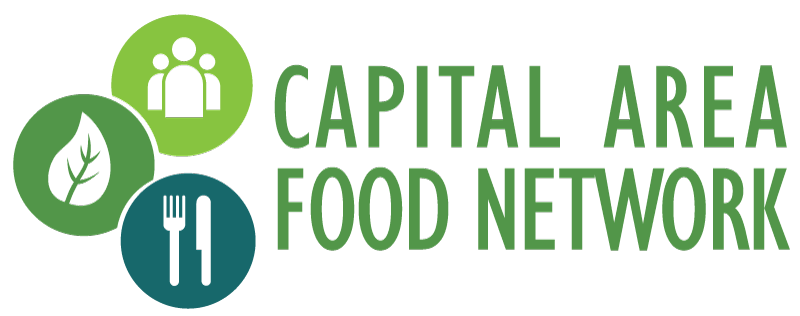Food Plan Funding Opportunity: Communal Garden Support
Communal Garden Funds Announced as Part of Wake County Food Security Plan Update
As part of the Wake County Food Security Plan Update, Wake County Cooperative Extension is excited to announce a new funding opportunity: $30,000 of funds are available this year to help start and expand community gardens in low-income areas in Wake County, especially in areas with high numbers of residents for whom transportation barriers cause undue hardship in accessing fresh, nutritious foods.
These funds are the first project to be overseen and evaluated by the Food Justice Cohort – a group of BIPOC food system experts and grassroots leaders from our local community – and we are thrilled to be able to provide support to potential applicants to try to make these funds as accessible as possible by members of our Wake County community.
Who Should Apply?
Those with a formalized group or partnership, such as a neighborhood association, a faith-based organization, a non-profit, or a less formal group with a written Memorandum of Understanding with one such organization;
Those who have secured land in Wake County with an agreement (such as through purchase, deed transfer, multi-year rental agreement, or multi-year Memorandum of Understanding) for use of the land
Those who are ready to secure additional funds to expand their gardens or to launch their garden plan
Those who may require additional technical assistance or support, such as help creating a site plan or annual planting plan, or mobilizing and organizing needed volunteer engagement to implement their garden plan
How to apply:
Complete an application form: Apply here
Email Vendor Form and supplemental materials to Trevor Hyde, Wake County Local Foods Agent, at trevor.hyde@wake.gov. Suggested materials are listed below, and examples and further resources can be found at the bottom of this page:
Photos and description of the site, especially aerial photos or diagrams
A site plan diagram showing how the funding would be used to change the physical space (even a hand-drawn diagram would be helpful)
A yearly planting plan showing effective use of growing space to produce food
Documentation proving ownership of land, multi-year rental agreement or Memorandum of Understanding for land-use
Sign up for a presentation slot and prepare a 10-15 minute presentation explaining your project
Presentations provide the chance to speak with the evaluation committee and answer any further questions. Each presenting group will have up to 15 minutes to explain their project and how it aligns with the priorities above, followed by 5 minutes for questions from evaluators. Sessions for presentations will be held virtually over Zoom and are planned for mid- to late March. Dates will be announced once we are able to see how many applications we receive, and how many such presentation sessions will be needed.
Application process:
Timeline
Friday, February 2nd: Application opens
Monday, February 12th, 5:30-6:30pm: Information Session
[Zoom Recording] Password: G9H+y!hY
Friday, March 15th: Application closes
Wednesday, March 20th, 5:45-7:30pm and Wednesday, March 27th, 5:45-6:45pm: Presentation Dates. Trevor will be in touch with any applicants about scheduling your specific presentation slot, but please hold this time on your calendar.
Evaluation Criteria
Proposals will be evaluated based on the following criteria:
Organizations led by those who will benefit most, or in which decision-making power is shared with those who will benefit most from the garden
Projects that will make the most impact in the community in which they are located
Projects that can be completed by the end of 2024
Projects demonstrating strong community engagement and commitment
Projects that have partnered with those with needed expertise, such as farmers or Extension Master Gardener Volunteers
Gardens that include gathering space for community members
Application Assistance
Questions and requests for assistance may be directed to Trevor Hyde, Wake County Local Foods Agent, at trevor.hyde@wake.gov. Assistance is available to all. Please reach out if you need help making site plans/diagrams, planning a planting calendar of culturally relevant crops, deciding best practices for leadership or volunteer-management, etc.
A virtual information session was held Monday, 2/12 to provide education on the application process and answer community questions. The session recording is here (PW: G9H+y!hY) for those who were unable to attend.
Resources
NC State Cooperative Extension resources for choosing plants and planting times and making a site plan:
Site plans do not have to include the specific plants exactly where you plan to grow them (like the examples), but SHOULD include important infrastructure and measurements: garden bed dimensions, full space dimensions, location of water lines/sources, gathering space, tool sheds, and/or walking spaces.
Diagram should clearly indicate which features already exist and which are being proposed
Example Planting Calendar (another one here )
Learn more about the Wake County Food Security Plan Update and the role of Communal Gardens (Strategy Two)
Example Bed Dimensions
Example Site Plan with beds and permanent infrastructure blocked out
(this needs dimensions like the one above)



